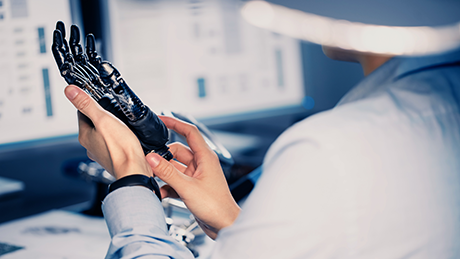The core mission of the Data Science Analytics Group is to accelerate the integration of data science technologies – including data management, high-performance computing, machine learning, artificial intelligence, and interactive data analysis into research projects. We have a close collaboration with the IT Department at the University of Oslo (UiO) in the application of the existing infrastructure and knowledge around data and computational science.
Our aim is to bolster competitiveness and increase productivity of the researchers at UiO as well as among our dScience partners. In support of this vision, we concentrate our expertise and resource on two primary areas:
- Targeted courses and workshops on the commonly encountered challenges by researchers
- Direct involvement in data and computational science aspect of research projects
Courses and workshops

Most of the courses and workshops are developed upon encountering commonly raised issues by researchers. These workshops are tailored to address the current challenges researchers are facing. Here is a list of workshops that are regularly held by Data Science Analytics group (the list will be evolving as we are preparing material for more workshops):
- Version control using Git and GitHub
- Building packages in R
- Building packages in Python
- Introduction to modern tools and packages in R
- HPC data visualization using ParaView
- Project management for PhD students.
The workshops are open to all PhD students, Postdoc and researchers within the Faculty of Mathematics and Natural Sciences.
If you are interested, please send us an email at contact@dscience.uio.no mentioning the name of the specific workshop you are interested in; you will be notified when the next workshops are scheduled.
Direct involvement in research projects
Every year around April, dScience issues a support call where research groups within the Faculty of Mathematics and Natural Sciences can send us a structured application describing the current data and computational challenge the groups face. Depending on the scope of the current challenge and its relevance to our team’s expertise and capacities, we assess the possibility of granting the support. Once the support project is deemed feasible, we collaborate with research groups to design an action plan to tackle the challenge at hand. The scope of this support is categorized in three main pillars: “Data preparation”, “Data analysis” and “Dissemination” with detailed sub-categories as follow:
Data preparation
- Data storage and access (systematic storage and sharing of data)
- Big data (challenges with storage and backup and memory for processing)
- Data organization and management (need to develop a system)
- Data pipeline and automation (use the data efficiently and effectively in pipeline)
- Data wrangling and transformation (prepare and structure data for analysis)
Data analysis
- High performance computing
- Programming support (need limited programming support on particular issues)
- Prototyping and implementation (turning your idea into a model)
- Statistical data analysis (you know what but don’t know how)
- Machine learning (from brainstorming on ideas to implementation and interpretation)
- Exploratory data analysis (need to explore and understand your data)
Dissemination
- Data visualization and communication (effective visualization of results for publications)
- Platform development (turning code to packages and graphical user interface)
The direct involvement support is open to all researchers and group leaders within the Faculty of Mathematics and Natural Sciences. If you have any questions, please send us an email at contact@dscience.uio.no.
dScience collaborates closely with USIT – The University Centre for Information Technology and their Department for Research Computing.

